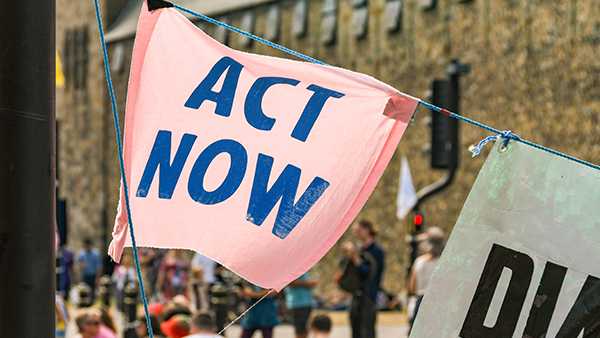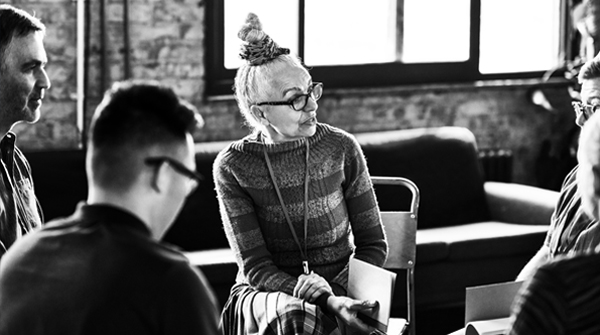Our tendency to moral superiority may be natural but might it also be increasingly dysfunctional?
Earlier this week I chaired an event with the great Jonathan Haidt, author of two of my favourite books; The Righteous Mind and The Happiness Hypothesis. He is working on a book about capitalism and morality and entertained an RSA audience with two polarised accounts of capitalism as either predatory and evil or productive and liberating. As he showed, both sides have plenty of material to make us angry, either with capitalism or those who he seek to tame or destroy it.
Given the year it’s been, Jonathan and I got talking about anger more generally. There are dangers in conflating the Brexit and Trump votes but they both share angry campaigns and equally, if not more, angry aftermaths. These campaigns have not seemed primarily about different policies but about different tribes with little good to say about each other. Neither side is happy merely disagreeing with the other, they want to insist on their moral superiority. Similarly, with the argument about capitalism, difficult questions about the system’s strengths and weaknesses are lost behind a simple tale of good versus evil.
This is why I think we should be concerned by some recent research which might, in more normal times, have been seen merely as amusing. In an article entitled ‘The illusion of moral superiority’, Ben Tappin and Ryan McKay from Royal Holloway University report new research on people’s perception of their own moral attributes.
It is a well-known fact that we tend to over-rate our attributes. Social psychologists often raise a laugh from an audience when they point out that nearly nine in ten motorists rate themselves as above average drivers. Our views of our driving may be superficial but judging our own moral rectitude surely involves deeper introspection. So, is the same self-evaluation bias to be found?
The answer Tappin and McKay conclude from their experiments is not only ‘yes’ but, as the authors state;
‘the absolute and relative magnitude of this irrationality was greater than that in the other domains of positive self-evaluation’
For Jonathan Haidt this tendency is not a cognitive flaw but a design feature. An overly positive self-assessment and a tendency toward moral hypocrisy are necessary features for a social species which has to believe in progress and engage in self-promotion. Other psychological research has suggested that those with a more accurate picture of themselves are also more likely to be suffering depression. Yet, like other instincts we developed across millennia of hunter gathering, such as eating all available food or valuing the short term over the long term, we may need to overcome our predisposition toward moral vanity to thrive in modern conditions. In his great book ‘The Challenge of Affluence’ Avner Offer describes as ‘commitment devices’ those institutions and norms – like lifelong marriage, credit limits, religious observance - which protect us from our evolved cognitive myopia. Offer also describes the problems we have faced since greater freedom and affluence led us to think we no longer needed those devices.
Democratic institutions and norms are among the commitment devices that help us deal with our tendency to be morally righteous. On the one hand, they encourage open debate which should foster a greater understanding of the claims of others, on the other hand, democratic process should ensure that no tribe’s views triumphs entirely at the expense of others. From this perspective the tenor of the EU referendum and the American Presidential campaign reflect a long term decline in the efficacy of those institutions and in the public’s attitude to them.
And things may get a whole lot worse. Yesterday I heard the public opinion researcher Deborah Mattinson describe how people are becoming even more pessimistic and resentful of those in power. Then a thoughtful journalist predicted to me that the word of 2017 will be ‘betrayal’ as voters here find out that Brexit will be much harder and much less positive than they had hoped while US citizens discover the emptiness of many of President Trump’s promises. Add to that those politicians, newspapers and websites involved in a loose conspiracy to maintain the population in a state of self-righteous rage and it is a toxic brew.
Democratic renewal and the creation of new spaces and institutions that help people see beyond their own righteousness should be priorities. But change needs personal soul searching too. I voted for remain and am horrified by the prospect of the new President but too much of the comment from those in my tribe has been of the righteous variety, what is sometimes called ‘virtue signaling’. If we want explanations for these outcomes, and – more to the point - want to avoid future defeats, our focus should be less on demonising those who voted for Brexit or Trump and more on the respective failings – not just practical but moral - of the European project and of progressive political leadership.
The RSA is a great organisation with hard working staff and amazing Fellows. We have a strong and idealistic value base and I never lose a chance to sing our praises. But we should make our argument not on the basis of a supposed moral superiority, but by hosting a conversation which starts with what human beings have in common; characteristics that include our unfortunate and potentially dangerous tendency to think we are better than we are.
Related articles
-
The public are ready to go further and faster on net zero
Anthony Painter
The public are ahead of policy-makers and, indeed, most of the business world. COP26 is an enormous opportunity to catch up. Global leaders should take it.
-
Can progressives ever stop the in-fighting?
Matthew Taylor
Biden's victory has caused the left and moderates to fracture again.
-
Can President Biden bring America together again?
Anthony Painter
There is a long road ahead for the new president.




Be the first to write a comment
Comments
Please login to post a comment or reply
Don't have an account? Click here to register.